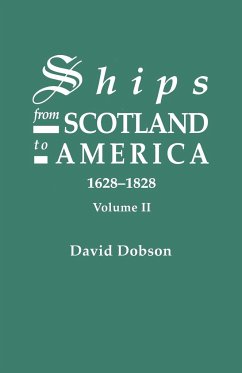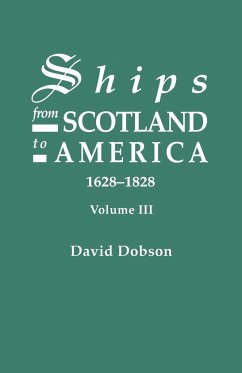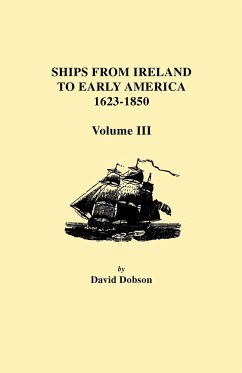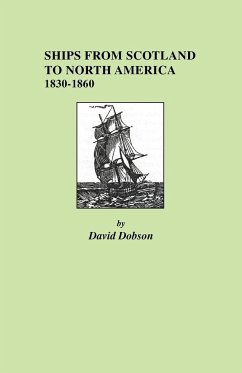One of the most difficult challenges facing genealogists is establishing where and when their immigrant ancestors arrived from Scotland. This is particularly true for the 17th and 18th centuries, periods for which records are far from complete. If the vessel the immigrant sailed on can be identified, then the ports of departure and arrival may also follow, and in turn this may indicate the locality from which the immigrant originated, thus narrowing the search. Volume II of this groundbreaking work is designed to identify ships plying their trade with North America between 1628 and 1828. While most early voyages between Scotland and North America were trading voyages, the majority of American-bound cargo ships carried a small complement of passengers, and a number of these passengers are named in newspaper accounts and in records of the Exchequer now housed in the National Archives of Scotland. Volume II is based largely on these two sources, especially the Exchequer records, which identify vessels, masters, and cargoes on which duty was charged. Such records are virtually complete from the year 1742, and though designed to raise income for the government through customs duties, they do sometimes refer to passengers.
Bitte wählen Sie Ihr Anliegen aus.
Rechnungen
Retourenschein anfordern
Bestellstatus
Storno





![Ships from Scotland to America, 1628-1828 [1st Vol] Ships from Scotland to America, 1628-1828 [1st Vol]](https://bilder.buecher.de/produkte/27/27241/27241183n.jpg)



